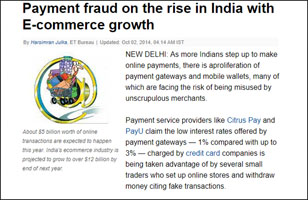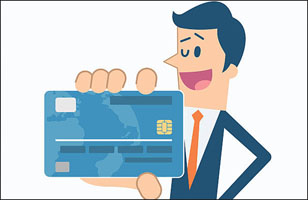Amazon Payment Scams
Guard against Amazon Payment Scams with our expert advice. Stay one step ahead of online fraud, understand phishing techniques, and ensure your cybersecurity. Learn to recognize and avoid financial scams targeting Amazon users.
The vast expanse of the Internet is fraught with fraud and scams, making online platforms like Amazon.com a sanctuary for vigilant shoppers. Amazon, known for its extensive product range and robust return policy, attracts consumers seeking a secure online shopping experience. However, some unmoral principles sellers exploit Amazon's customer communication system, targeting unsuspecting shoppers in scams.
As a regular Amazon subscriber, you likely receive emails related to Amazon Payments. However, not all of these emails are genuine. Some may be deceptive, leading you to a website that mimics Amazon Payments. Once there, you could be prompted to provide sensitive information such as your account details, OTP, or password combinations. It's crucial to exercise caution to avoid falling victim to such scams. By leveraging the protection offered by Amazon's buyer protection program, you can safeguard yourself from potential hassles and financial losses.
Protect Yourself from Amazon Payment Scams: A Guide to Spotting Phishing Attempts
Safeguard yourself from internet deception by remaining vigilant and identifying potential phishing attempts, especially when it comes to Amazon payment methods. If there's any suspicion during a payment transaction, don't hesitate to seek more information from the intended recipient regarding the purpose and security of the requested payment. If anything feels uneasy about the transaction, refrain from sending the payment.
Be cautious when encountering enticing deals on items like cars, trucks, or boats on platforms such as Craigslist, eBay, or other internet marketplaces. Deals that seem too good to be true often carry hidden risks that could lead to financial losses. Remember, a legitimate car seller will not request payment in Amazon Gift Cards. Protect yourself from potential scams, including the notorious Amazon Payments Car Scam, by exercising caution and thorough verification.
Tips to Avoid Payment Scams: Protect Yourself Online
- Exercise caution with lottery winnings received through internet or phone offers.
- Avoid making payments to individuals or entities whose identity you cannot verify.
- Think twice before making payments to claim lottery winnings that promise a lump sum in return.
- Be wary of emails requesting sensitive information such as bank account details, email addresses, OTPs, or any other personal data. Remember, Amazon will never ask for such information.
- Never send money through methods like cash, wire transfer, Western Union, PayPal, Money Gram, or Amazon Payments to a vendor claiming that Amazon or Amazon Payments will ensure the transaction, refund your funds if you are dissatisfied with the purchase, or hold your funds in escrow.
- Keep your anti-virus and anti-malware software up to date to protect against potential scams and phishing attempts.
Stay informed and be proactive in safeguarding your financial transactions and personal information online.
What to Do If You've Fallen Victim to a Payment Scam
In the unfortunate event that you believe you have been scammed, take immediate action to minimize damage and prevent further loss. Consider the following steps:
- Report the incident to local authorities to ensure appropriate legal action is taken against the scammers.
- Seek advice from legal representatives to understand your rights and options.
- Report the scam to your financial institution if you have disclosed sensitive information such as credit card details or bank account information.
- Monitor your accounts closely for any unauthorized transactions and report them promptly to your bank or credit card company.
- Consider installing or updating security software on your devices to protect against future scams and phishing attempts.
Taking swift and decisive action can help mitigate the impact of the scam and prevent further harm to your financial well-being.
As online shopping continues to thrive, so do the attempts of scammers to exploit unsuspecting consumers. One prevalent method involves deceptive practices related to Amazon Payments. It's crucial to stay informed and vigilant to protect yourself from falling victim to these scams.
Scammers often send misleading emails, posing as Amazon Payments notifications, to trick users into divulging sensitive information. These phishing attempts may lead you to fraudulent websites that closely resemble Amazon's official platform. To safeguard your personal and financial data, it's imperative to recognize the red flags and follow best practices.
Common Tactics Used by Amazon Payment Scammers:
- Fake Emails: Scammers send emails that mimic legitimate Amazon Payments notifications, urging recipients to click on malicious links.
- Impersonation: Scammers may pose as Amazon support representatives, asking for personal information or login credentials.
- False Purchase Confirmations: Fraudulent emails may claim unauthorized purchases on your account, prompting you to take immediate action.
Protective Measures to Avoid Amazon Payment Scams:
- Verify Email Addresses: Check the sender's email address for authenticity. Legitimate communications from Amazon Payments will come from official domains.
- Avoid Clicking Suspicious Links: Do not click on links in emails; instead, manually enter the Amazon website address to access your account.
- Enable Two-Factor Authentication: Strengthen your account security by enabling two-factor authentication for your Amazon account.
- Regularly Monitor Your Accounts: Keep a close eye on your Amazon account for any unauthorized transactions and report them immediately.
- Use Official Channels: If you receive suspicious communications, contact Amazon directly through their official website or customer support.
By staying vigilant and following these precautions, you can significantly reduce the risk of falling prey to Amazon Payment scams. Remember, Amazon will never ask for sensitive information via email, so exercise caution and report any suspicious activity promptly.





